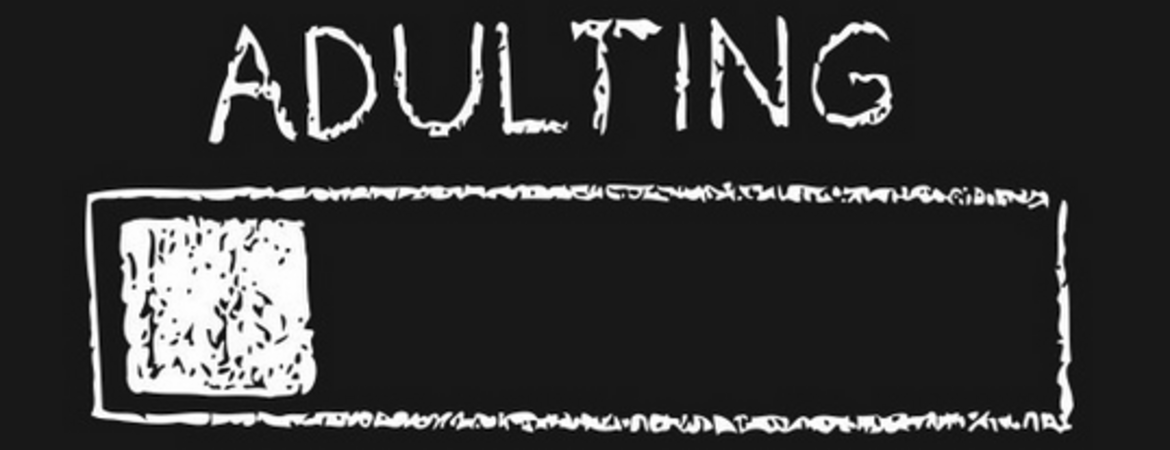Supporting Graduate Students' Academic and Professional Success

What are some of the stressors affecting young adults today and what can instructors, especially TAs, do to support them as students?
Adulting in Contemporary Society
Have you ever heard the word adulting? How or where have you heard it being used? What actions are associated with this word? Why do you think such a word now exists?
[Image Description: Person jumping into swimming pool (badly) with caption that says, “me adulting.”]
Pictured: It's harder than it looks.
How are young adults today different from those in the past?
In 2005, about 25% of Americans ages 18-34 were living in their parents’ homes. Just ten years later, that number climbed to 33%.[1] What is going on in the lives of young adults that is causing them to return, or stay at, home? A comparison between the lives of young adults 75 years ago and the lives of young adults today provides more clarity to this question. Whereas many 20-year-olds were already married and having children in 1950,[2] 20 year-olds today are encountering a new life stage called "emerging adulthood."
Emerging adulthood has been characterized as a time of identity exploration, instability, self-focus, and feeling in-between.[3] Social and economic barriers create bigger challenges for young adults to achieve traditional milestones to adulthood, such as completing one’s education and gaining financial independence from one’s parents. Thus, we get an extended period of adolescence where it is more difficult to “adult.” And from this, we get a verb describing the doing of adulthood without one truly feeling like a “real” adult. Along with pressures brought about by emerging adulthood, the prevalence of mental health problems among college students has been increasing for the last eight years.[4] In sum, there are a variety of factors that are contributing to a period of challenges for young emerging adults in college.
[Image Description: A person with bills, a calculator, and a very long roll of calculations
shakes their hands and head in frustration.]
Pictured: When it just doesn't add up...
What can instructors do to support students encountering emerging adulthood?
While undergraduates come from diverse ages and backgrounds, the majority (including at UCR) continue to be those between ages 18-29.[5] As TAs, the circumstances experienced by our students who are young adults directly impacts our work in the classroom. Here are some tips on how to support students encountering emerging adulthood today:
- Be aware of the issue: Understanding the circumstances affecting many students today is the first step in being able to support them. Knowing that social and economic barriers exist that are affecting our students’ well-being can prepare us for addressing the challenges our students experience.
- Be familiar with on-campus resources that can support students: While TAs may be in the closest proximity to address the issue, we may not always have the tools to help our students directly (additionally, it may not always be appropriate for us to do so, and we may be dealing with some of the same issues ourselves!).
- Recognize that students are people: Even if we have a limited toolkit to address these issues, there are still steps we can take within the classroom to adequately respond to the circumstances of modern-day students. Recognize that students are people and we only see one piece of their life – that which takes place in the classroom. Be compassionate and understanding, recognizing that we may not know everything that is going on outside of school.[6]
- Be accommodating but don’t lower the bar: Do what is within your power in the course to help students and be understanding. However, while extended deadlines or make-up assignments may be necessary for supporting students, instructors can still maintain the standards of achievement we aim for everyone to meet and be accommodating.[7]
The circumstances in which young adults are growing up today are extremely different from those that young adults faced 75, 50, or even 10, years ago. Developing an understanding of the challenges they are facing is a good beginning to support their success as students in your classroom.